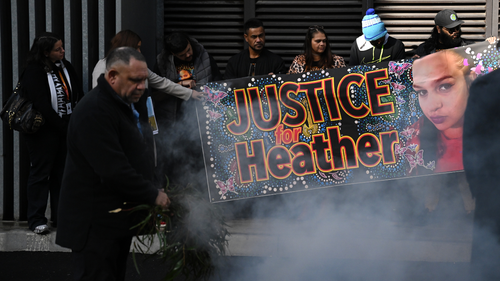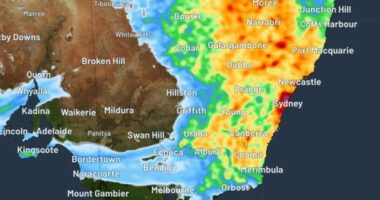Share this @internewscast.com
WARNING: Aboriginal and Torres Strait Islander readers are warned the following article contains an image of a deceased person.
An Aboriginal woman’s infant was taken from her at birth, she was refused parole, and subsequently, a doctor administered a high dose of synthetic opioids, resulting in her death.
The coroner concluded on Monday that Heather Calgaret’s death while incarcerated could have been avoided, and her health significantly worsened in prison after her baby was taken away.
“Her death was not only avoidable, but she also should not have died in the way that she did,” stated Victorian coroner Sarah Gebert in a detailed 300-page report following an inquest.

“The dose given was too high, there was no escalation to her care until the following morning,” Gebert said.
“Heather’s death could have been prevented.”
A doctor’s prescription of Suboxone – a buprenorphine used to treat opioid dependence – the day before she was found unconscious was “inappropriate and lacked careful consideration”, she said.
Calgaret’s sister Suzzane, who was housed with her at the prison, found her struggling to breathe on the morning of November 23, 2021.
She shook Calgaret to let her know it was time for the daily count, but her younger sister was not moving.
A “code black” was called and she was taken to hospital where she died four days later.
Outside court, Suzzane welcomed the findings but said it should not have taken her sister’s death for changes to be made to the prison system.
“I hope they just have learned from this because it’s taken my sister’s life, my mum’s daughter’s life,” she said.
“There’s a reason now for her passing, and that reason has been justified by the outcome, but it doesn’t bring her back.”
Gebert issued several recommendations, including that the justice system implement community-based Aboriginal health care inside the women’s prison.
She said women who give birth in custody should be given additional care, including psychological treatment if their babies are removed from them.
She also found “numerous issues” with the parole application process, including a lack of transparency in the prison and that Aboriginal people were disproportionately impacted by lack of available treatment.
Readers seeking support can contact Lifeline on 13 11 14 or beyond blue on 1300 22 4636.
For 24/7 crisis support run by Aboriginal and Torres Strait Islander people, contact 13YARN (13 92 76).












